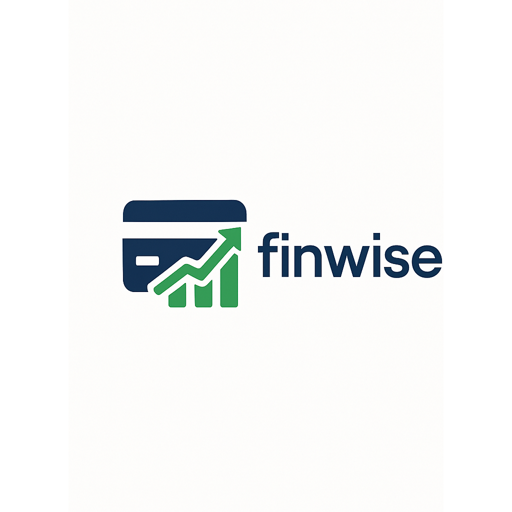No Waste Budgets: The Easy Way to Master Your Money in 2025
Money management can be confusing spending not knowing where it all is going at the end of each month. And if you ever asked how your paycheck disappeared before the next payday, you are not the only one.

Luckily, though, there exists a budgeting technique that allows you to reign supreme over your personal finances — and its so much easier than it sounds. It is called zero-based budgeting.
This guide will things including what zero-based budgeting is, how zero-based budgeting works, and how you can start using zero-based budgeting today to make better decisions, save money, and meet your financial goals in 2025.
What Is Zero-Based Budgeting?
In the case of zero-based budgeting, that means getting every dollar you earn to do a specific job. In the beginning of the month (or pay period), you determine where every dollar of your income is going to go — bills, savings, debt repayment, etc. You should end your plan with your income – expenses = $0.
That does not mean that you blow all your cash. That means you literally plan every dollar so that none is left behind. You put your money to work exactly where you want it rather than letting it seep away without a plan.
Why Zero-Based Budgeting Works
The major advantage of zero-based budgeting is that you may be intentional with it. You are not simply tracking your spending retrospectively; you are pre-emptively defining how your money is going to be allocated.
Here are just a few reasons it is so effective:
It must elevate awareness — each month you will see where your money flows through.
It prevents overspending — You are conscious every dollar has a job, which means there is less likelihood of pointless spending on things you did not budget for.
It keeps you on your plan — You can ensure that your expenditures correspond with your priorities, such as paying down debt, saving to go on vacation, or creating an emergency fund.
No matter your level of income — Whether you make $2,000 a month or $20,000, the process is identical.
5 Steps to Create a Zero-Based Budget
Getting started with zero-based budgeting need not be rocket science. Follow these simple steps:
Step 1: Determine Your Monthly Imcome
Your total income Get all sources of income you anticipate receiving for the given month and total them up. This consists of your primary job, side hustles, freelance work, commissions or anything else consistent income.
For example:
Salary: $3,000
Freelance work: $500
Total monthly income: $3,500
This is your figure to base your budget off of.
Step 2: Write Down All Your Expenses
List all anticipated monthly expenses. Add both your fixed expenses (rent, insurance, car payment) and variable expenses (groceries, gas, entertainment).
Example list:
Rent: $1,200
Utilities: $200
Groceries: $400
Transportation: $250
Insurance: $150
Entertainment: $100
Savings: $300
Debt payments: $500
Miscellaneous: $100
Step 3: Give Every Dollar A Job
And this is the most important bit: allocate all your income to a specific expense item until all dollars are used up. Create a budget: start with the necessities—housing, food, utilities, transportation. Then factor in savings, debt repayment and discretionary spending.
Income minus expenses should be equal to zero.
For example:
Income: $3,500
Expenses: $3,500
Remaining: $0
Tracking Step 4 — Your Spending During the Month
A budget is only effective when you’re actually sticking to it. Monitor your monthly spending for each category You can use a budgeting app, a spreadsheet, lock a notebook.
If you go over in one category just spend less in another category. The point is to maintain the total at zero.
You could roll up the 5th step every month by reviewing everything and making small adjustments to your life.
Your budget is flexible Your monthly plan will change depending on your income, bills, or objectives. At the month-end, you ought to do a revisited check on the extent to which you followed the plan and ensure to modify the factors for the month ahead of you.
Common Mistakes to Avoid
Here are some common pitfalls to avoid when starting out with zero-based budgeting:
Forgetting irregular expenses — Things like car maintenance, annual insurance premiums, or Christmas gifts should be factored into your budget by saving up a little each month.
When not tracking your spending — A budget will only be effective if you track your actual spending.
Overly rigid — Yes, stick to your budget, but allow a little wiggle room for fun and spontaneity.
How To Succeed With A Zero-Based Budget
Account separation — Have one for bills and one for play money so you can follow the flow of cash better.
Schedule savings & debt repayments — Set it on autopay so you do not forget.
Bucket for your goals — Fund the targets that are the most important to you first before moving on to the less critical buckets.
Keep it up — As with any habit, budgeting becomes second nature in time.
Who Should Use Zero-Based Budgeting?
Zero based budgeting can work for pretty much anyone, however, it is particularly useful if you:
Struggle with overspending.
Wishing to hit a specific savings milestone as soon as possible.
Are working to pay off debt.
You need to be strategic on how to spend.
Transform Your Finances in 2025 Using Zero-Based Budgeting
Giving a job to every dollar you earn means taking control of your money and this avoids in the long run having your money control you. You can track money directly better spend less and advance your goals faster.
For instance, with zero-based budgeting, someone making $3,500 a month could pay off $6,000 of credit card debt in less than two years by just making sure to cut out spending that isn’t needed.
Final Thoughts
Zero-based budgeting is the easiest-but-most-effective way to manage your money in 2025. This doesn’t mean you’re limiting yourself, it means that you should make sure that your money works for you. Spending money is fine if you plan it in advance, check it regularly, and adjust the plan when necessary – you are in full control of your finances.
Give zero-based budgeting a shot for the next three months if you feel like your paycheck is gone before you get your foot in the door. You might be shocked at just how much better in control and confident you feel regarding your money.
Our Post

Mastering Dividend Growth Investing: Your Path to Lasting Financial Freedom

Master Your Money: The Ultimate Blueprint for Financial Freedom


